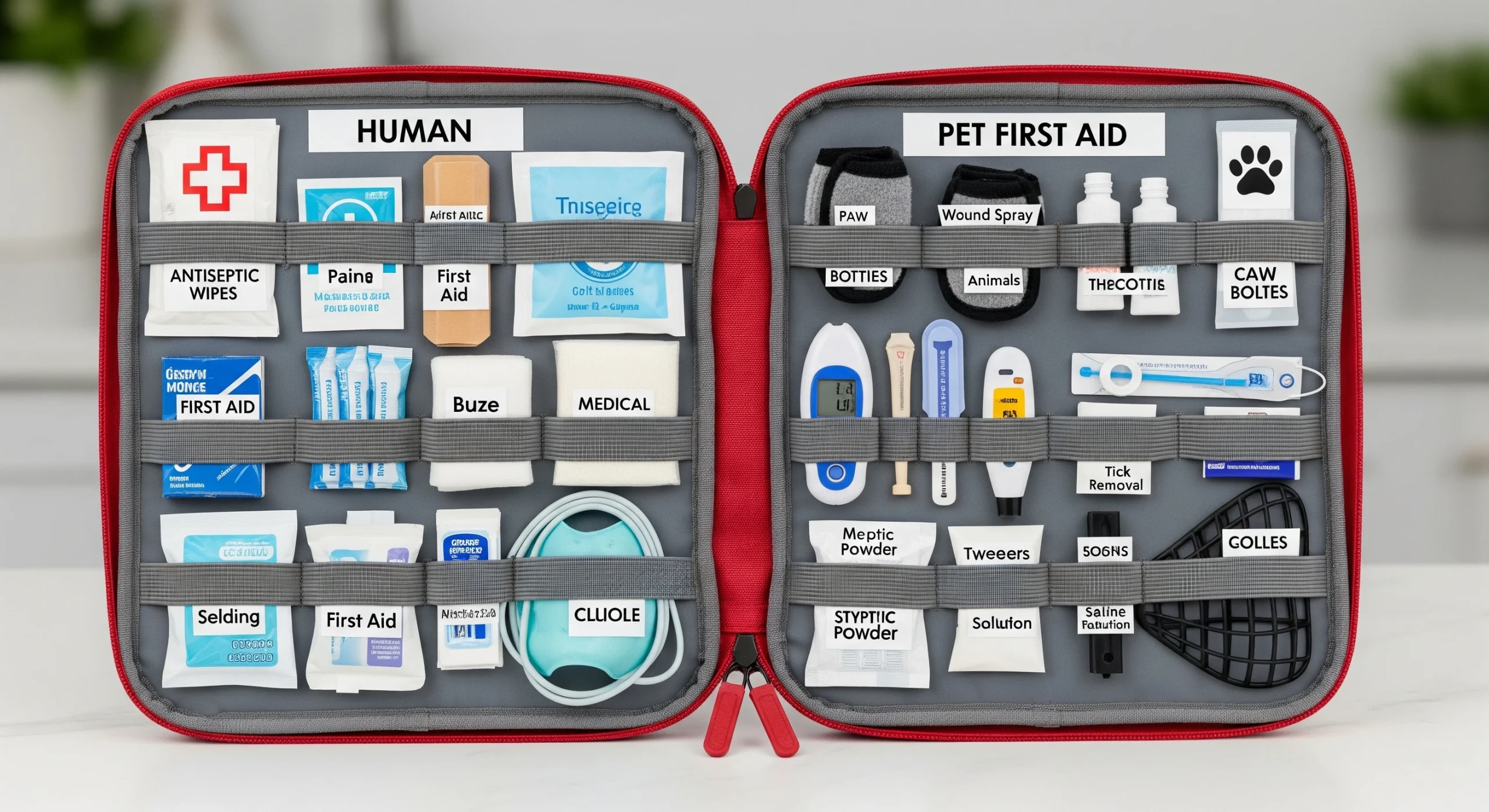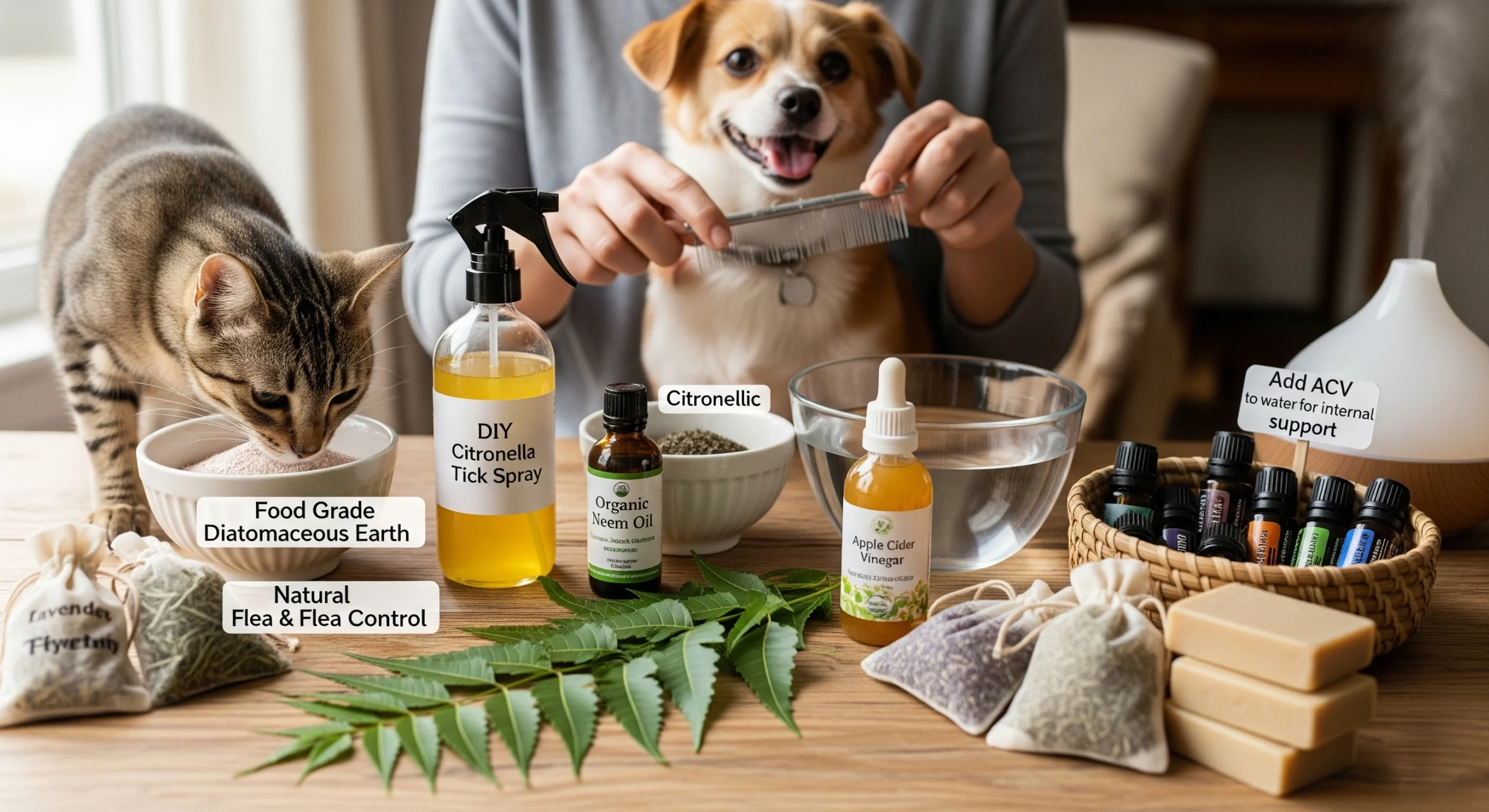Managing Common Health Issues in Humans and Pets at Home

Introduction
Health is an essential aspect to maintain, both for humans and pets. In daily life, we often face minor health problems that can actually be treated at home—if we know the right methods. Understanding the differences and similarities in handling health problems between humans and pets is also important to avoid giving the wrong treatment.
Common Health Problems in Humans

1. Headaches
Common causes: Lack of sleep, stress, dehydration.
Home remedies: Drink 1–2 glasses of water, rest in a dark room, apply peppermint essential oil to the temples.
Seek medical attention if: Pain is unbearable, accompanied by persistent vomiting, or lasts more than 2 days.
2. Common Cold & Mild Flu
Symptoms: Nasal congestion, sneezing, mild fever.
Natural remedies: Drink warm ginger tea with honey, take a warm bath, inhale steam from boiled mint or eucalyptus leaves.
3. Minor Cuts or Scrapes
Quick care: Rinse under running water, apply natural antiseptic (like honey or aloe vera), cover with sterile bandage if needed.
4. Mild Diarrhea
Causes: Contaminated food, diet change, food intolerance.
Remedies: Drink oral rehydration solution, eat bananas, rice, and drink warm tea. Avoid greasy foods and dairy.
Common Health Problems in Pets

1. Fleas and Itching in Dogs/Cats
Signs: Frequent scratching, hair loss in certain areas, redness on skin.
Natural care: Bathe with anti-flea shampoo, apply anti-flea powder or coconut oil, clean bedding and toys regularly.
2. Diarrhea in Pets
Causes: Incompatible food, mild infection, stress.
Initial care: Stop feeding for 12 hours (for adult dogs), provide warm boiled water or pet oral rehydration, consult a vet if not improved in 24 hours.
3. Eye Discharge or Watering
Symptoms: White or yellow discharge, eyes sealed shut, frequent rubbing.
Care: Clean with sterile cotton and warm water, apply sterile saline drops, prevent scratching.
4. Overgrown Nails
Signs: Limping, nails scratching hard surfaces, nails curling inward.
Care: Use pet nail clippers, trim slowly (1–2 mm from tip), reward to avoid trauma.
Differences in Treatment Between Humans and Pets
| Common Problem | Humans | Pets |
|---|---|---|
| Mild fever | Compress, paracetamol | Check ear temperature, compress |
| Minor cuts | Antiseptic, bandage | Rinse with boiled water, pet-safe ointment |
| Dehydration | ORS, plain water | Pet-safe ORS, salt-free broth |
| Digestive upset | Diarrhea medicine, BRAT diet | Pause feeding, consult vet |
FAQ – Frequently Asked Questions
Q: Can I give paracetamol to a cat with fever?
A: No. Paracetamol is toxic to cats. Only use vet-approved treatments.
Q: What is the normal body temperature for cats and dogs?
A: Cats: 38–39.5°C, Dogs: 37.5–39°C. Use a pet ear or rectal thermometer.
Q: Are essential oils safe for pets?
A: Not all. Some oils like tea tree and eucalyptus are toxic to cats. Only use vet-recommended ones.
General Home Health Care Tips
- Keep separate first aid kits for humans and pets.
- Do regular check-ups every 6 months.
- Maintain a clean home and pet area.
- Provide nutritious food and clean water daily.
- Spend quality time together to strengthen bonds.
Conclusion
Maintaining health is not just a personal responsibility, but also for the furry friends who share our homes. With basic knowledge and quick actions, many common health problems can be managed without panic. Early and proper care can prevent bigger issues in the future—for both humans and pets.


